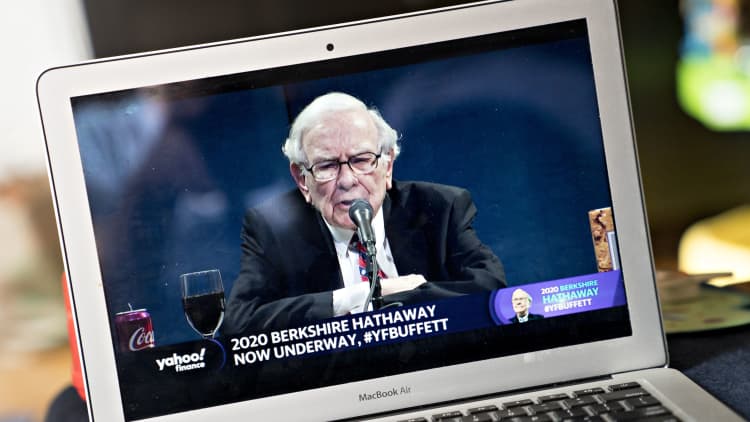The rebuilding debate going on in Washington – over which existing businesses are deserving of aid, and how quickly they should reopen – misses a critical point that will determine how successfully we recover from the Covid-19 economic collapse: What are we doing to encourage the creation of new start-up businesses, particularly outside of places like New York and San Francisco?
Understandably, Congress has, to date, pumped trillions of dollars into trying to help existing businesses. But this strategy will not create the jobs needed for recovery. First, because of public health restrictions, reopening existing businesses may not bring back all the jobs those entities previously provided. For example, if restaurants are required to operate with fewer tables for an extended period, they may not rehire all their servers and kitchen staff.
Second, data shows that while small businesses provide the vast majority of the jobs in our country, they do not create job growth – the new jobs needed to make up for the ones lost. That job growth comes from fast-growing start-ups, businesses that have created almost all the net new jobs in this country over the past 20 years. Since early March, at least 34,000 employees across more than 360 startups have been laid off. And yet federal relief efforts thus far have done virtually nothing to spur this part of our economy.
So how could Congress address this with its next package of economic measures?
First, it should provide capital for potential entrepreneurs who want to start businesses. Half of today's Fortune 500 started during a bear market or recession. Some of the most successful companies in American history were launched during economic downturns – FedEx and Microsoft during the 1970s recession; Spanx and Salesforce as the dot-com bubble burst in 1999; Uber and Venmo during the Great Recession of 2009.
How can we use federal policy to try to encourage such new business creation now? Without spending one extra federal dollar, Congress could allow those already eligible for now-enhanced unemployment benefits to draw half that benefit upfront – about $12,000 – if a beneficiary agrees to use that money to start a business employing themselves and one other person. And it should expand the small business loan program it has funded twice (the so-called Paycheck Protection Program) to not only "protect paychecks" but to also spur the generation of new paychecks. That would allow entrepreneurs to get small business loans to start new businesses, not just keep existing ones open.
Second, Congress should direct that some of the hundreds of billions of dollars that will be put into buying equipment, making new therapeutics and vaccines and standing up a national testing and tracing apparatus must go to start-ups. To date, the vast majority of funds for these efforts have gone to large manufacturers and providers, large drug companies and large tech companies. These established players are critical, and we need them to help solve the vexing problems we face.
But history shows that innovation and job growth often come from upstarts in these fields. For example, the vaccine that beat Ebola came not from a huge drug player, but from a small biotech firm called BioProtection Systems Inc., which later became NewLink Genetics. The same is often true for lower-tech breakthroughs, including potentially faster processes for making protective gear or test kits. Thus, Congress should set aside 20% of all spending on procurement for pandemic response products and direct that it be funneled to emerging businesses. Growing these smaller players helps create jobs, and makes us more innovative.
And finally, we need to think about "place" and recovery. The red state versus blue state debate is misguided for many reasons. But chief among them is that we have budding technology businesses in cities in states of all political alignments: Indianapolis and Albuquerque; Omaha and Pittsburgh; Nashville and Phoenix; Madison and Orlando. I have brought my "Rise of the Rest" bus tour to more than 40 of these mid-sized cities over the past six years, and invested in more than a hundred companies in them. The potential there is enormous, and yet nearly 75% of all private venture capital still goes to just three states: New York, California and Massachusetts.
Of course, New York, Boston and San Francisco need our help, and deserve it. But if we are going to foster the growth of new businesses, rising start-up ecosystems in other parts of the country cannot be ignored. The "Main Street Relief Fund (MSRF)" – the single largest program in the CARES Act – should be changed to help start-ups in these emerging markets grow. First, the requirement that businesses must already be profitable to access the MSRF should be removed: It ironically rewards businesses that contribute little to new job growth, and punishes those start-ups that fuel job creation (Firms that are funding growth rather than profitability cannot access these funds.) And second, the program should require a portion of the funds go to firms based outside of the coastal tech hubs: firms that are often ignored by both private investors and public programs.
I can understand why policy makers focused first on restoring existing firms that have been hurt by the Covid-19 crisis. But in times of adversity, America does not succeed by simply trying to put everything back the way it was before. We need to grow our way out of this crisis, by backing start-ups all around the country that can create jobs and strengthen our economy for the future.
Steve Case, a co-founder of America Online, is chairman and chief executive of Revolution and author of "The Third Wave: An Entrepreneur's Vision of the Future."


